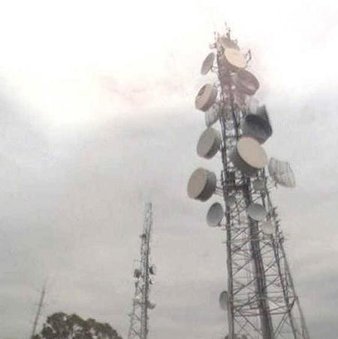I'm a licensed Aircraft Mechanic & Inspector with twenty five-plus years in the field. I've had a varied career so far, with time spent in the sheetmetal, mechanic, and inspection specialties. Most of my time is on heavy Boeing and McDonnell Douglas aircraft, of the passenger, cargo, and experimental type. This career isn't for everyone, but I enjoy it.
Please do NOT ask me to troubleshoot problems with your airplane, that is not what this Q&A is for.
A comedic answer to the question of "Am I mechanically inclined?", might be to say, "If you have to ask........".
However, I think that the whole mechanically inclined thing, comes from people who are curious and motivated by that curiosity, from an early point in life. You know the ones: They are the ones that took apart their toys, and were working on their bicycles before anyone else. And they were the first ones to successfully put their toys back together again (and they worked like they were supposed to!).
This same curiosity and motivation serves many different types of people. From people who want to know what makes a computer do what it does, and in turn, make a computer do what they want (computer engineers). To the person who wonders what makes people do certain things, and learns how to manipulate people to think and act certain ways (social engineers).
The things we grow up doing, and focusing on, are typically the things that we are "inclined" towards as adults. Meaning, that we have a more natural way with it. The tools for that job, whatever it may be, fall naturally into our hands from muscle memory.
So, following all that discussion; if you grew up taking apart things, learning how they work, and putting them back together; working with hand tools and power tools; and now find yourself grown up with all that experience behind you: I'd call you mechanically inclined.
Can someone learn to be mechanically inclined?
I'd have to put the stipulation out, that you have to want to be so inclined. If you are being forced into a profession, you'll have a hard time excelling at it.
But if you have the desire to be a mechanic (or electronics technician, sheetmetal worker, etc), then I see no reason you could not develop the expertise required. Provided you are motivated, intelligent, and logical, in your approach.
Tools will feel clumsy in your hands if you haven't used them often in the past. An assembled component, or aircraft, will seem impossibly complex. Principles and theory will seem like magic.
All those things you can learn to work with.
The more you use your tools, the more naturally they will fall into your grip, and the more you can use them without fatigue.
If you use logic to break down the most complex system, it will be simple to approach any job.
Learning the theory and basic principles behind the functions of an aircraft, while not necessary to be a mechanic in all situations, will assist you in understanding why things have to be a certain way to function properly.
A&P school will be an excellent place for you to learn all these things. Just don't get frustrated with yourself if certain things are hard at first. Everyone had a first day doing everything, even people who seem so good at something that it seems they must have been born doing it.
If you persevere, you will find the part of being an aircraft mechanic that you are best at, and soon people will watch you work and think you were born doing it too.
I generally work 40 hours a week. With some periods of needing to work 50 or 60 per week.
There is a regular scheduled 3rd shift here where I work, so I don't have to work those kinds of hours.
The only time I've been called in the middle of the night, was when I worked a position where I did not have real scheduled hours to work. Which sounded great at first, until they started calling at all hours of the day/night.
Where I work, mechanics start at $21 US/hr; and inspectors start at $55k salary per year.
The most common overtime I work, and have historically worked; is the kind where you come in for your regular shift, and get roped into staying until something is done. Which can mean 12, 18, even 24 hours on the clock. Getting asked to stay a little late is common. 4 + hours over, is rare.
First off: In the United States, an A&P (Airframe & Powerplant Technician) is never called an Engineer. And an Engineer, is never called an A&P. Reason being, that they are very different jobs.
In the USA, if you are an engineer; then you are involved in the design and stress analysis end of things. Whereas the A&P works the aircraft or components themselves.
Also: An engineer would require at least a 4 year degree from a university. An A&P can get educated and certified in 1.5 to 2 years, depending on where you go.
As far as cost for you to go to a school here in the USA, as a non-resident? I really have no idea.
You are going to have to contact the admissions department, of whichever schools you are interested in going to. They will break down all the financial estimates for you. That's what they are there for.
I can only speak from my own experience. That back in 1990 - 1992, when I got my two year degree, and A&P from Lansing Community College; it cost somewhere around $18,000 USD for the entire program. But that was with me being a resident, and living at home with my parents.
So you'd have to figure a non-resident fee, plus room and board on top of that $18,000 for you; as well as account for 25 years of inflation!
Sorry to not be more help. You really do need to get in touch with the admission departments of some of the colleges and universities that offer A&P certification programs. There are a lot of good ones out there.
I recommend the programs at Lansing Community College; Northern Michigan University; and Western Michigan University.
There are many others though, and I encourage you to shop around.
Good luck!
I'm sorry, I really have no idea if that is allowed. I'm not on that end of the business.
Social Security Employee
 Did the US economic collapse cause a surge in disability applicants?
Did the US economic collapse cause a surge in disability applicants?
Radio program/music director
 What's the secret to actually getting through when you call in for a radio contest?
What's the secret to actually getting through when you call in for a radio contest?
Day Care Provider
 Do the kids ever reveal embarrassing things about their parents?
Do the kids ever reveal embarrassing things about their parents?
Yes, of course you can!
The answer, as with most professions, is both Yes, and No. Reason being, is that you weren't very specific in your question.
An aircraft technician can work anywhere in the world that they have permission to work, just like anyone else. But the value of any licenses they have, depends very much on which company they work for, and the country they are in.
I'll illustrate this with a close neighbor of mine: Canada.
As a United States FAA licensed Airframe & Powerplant technician, I can work in Canada, as long as I have the applicable Canadian government permissions to do so (work visas, corporate sponsorship, etc). And I very much had the opportunity to possibly do so, back when I worked for Pratt & Whitney Canada in Upstate New York.
But, since the CAA (Canadian Aviation Authority; their equivalent of the FAA) does not have reciprocity with technician licensing; my A&P license wouldn't have any literal value. I would not have authority to release any parts or aircraft as airworthy. I would be restricted to working as the equivalent of an unlicensed mechanic's helper, or apprentice.
The same is true of a CAA licensed technician who wished to work in the USA. Different licenses for different aviation authorities.
A notable exception to my situation, would be an FAA licensed Repair Station. There many of them located around the world, and my A&P license would have value if I worked with them.
Another exception would be working with any US "N" registered aircraft. My A&P has value when working with those aircraft, no matter where on earth they are. As I could do maintenance or modifications on them, and have authority to declare them airworthy or not.
So yes, an aircraft technician does have opportunities to work anywhere in the world, as long as their licensing is effective where, or on what, they are working. Also, you could work for a company that might send you to all corners of the earth on their dime.
But then again, no, we as individual technicians cannot just go working anywhere we want, unless we have the proper government permissions to do so.
I hope that all made sense.
This is a little outside my expertise area of maintenance and inspection, but I can tell you what I know.
All commercial aircraft, with cargo areas below the passenger deck, are pressurized. That area is within the pressure vessel of the fuselage.
"Most" commercial aircraft, have cargo areas that can be controlled as far as temperature. On some aircraft, it is only one of the cargo bays, on others it is all of them.
From my limited research, if an airline calls itself "pet friendly", they will take care of your animal very well, and insure that the pet is in temperature controlled areas the whole time it is in their care.
I learned a little by reading this link: http://www.petrelocation.com/blog/pet-travel-expert/pet-cargo-myths-and-facts
You will have to do some more research into customer experiences, and particular airline policy.
-OR-
 Login with Facebook
Login with Facebook (max 20 characters - letters, numbers, and underscores only. Note that your username is private, and you have the option to choose an alias when asking questions or hosting a Q&A.)
(A valid e-mail address is required. Your e-mail will not be shared with anyone.)
(min 5 characters)
By checking this box, you acknowledge that you have read and agree to Jobstr.com’s Terms and Privacy Policy.
-OR-
 Register with Facebook
Register with Facebook(Don't worry: you'll be able to choose an alias when asking questions or hosting a Q&A.)